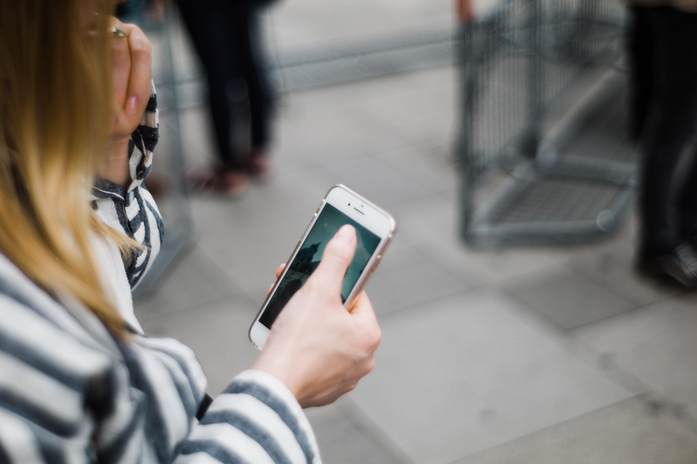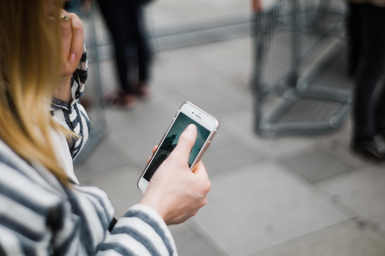Edited by: Kaavya Azad
The average Gen-Z spends three hours on social media platforms every day, making social media a crucial component of our lives. Since we were introduced to social media during our teenage years, it is also fair to say that social media has heavily influenced our upbringing and perception of many things.
With the cons of social media being so obvious, a new, fresher perspective would be to see the yin and yang of this — being a person who has grown up with social media, I have seen the world around me change drastically.
Concept of education and “woke culture”
These platforms have played a huge role in educating the present generation. The promotion of woke culture has helped many people refine their perception of right and wrong. This has brought many issues which were suppressed to light and has fulfilled one aspect of bringing the world closer. This promotes inclusivity and lets people know that they are not alone in struggling with these issues.
The word ‘education’ has meant only learning of material and subjects, up till now. The previous generations have had no chance but to accept the social perceptions, ideologies, and standards set. The concepts of toxic masculinity, consent and sex education, different gender identities, and sexual orientations are new, to put it mildly, to the previous generations due to the lack of discussion and discouragement.
The future holds a lot more promise of acceptance and open-mindedness about these issues. Even with the algorithm in place to show you similar results, you are bound to come across different points of view about everything. Conventional ideas are being challenged; important conversations are starting to take place. The coming generations will slowly dilute these issues as they will be much more educated.
Movements and campaigns which change the world
Political awareness was not very prevalent before social media. People didn’t have many choices for news except for news channels, which weren’t exactly known for pure journalism and mostly reported half-baked theories about current affairs. People got voted to power based on pure popularity and biased tactics, and not for their work while in power.
Things have not changed drastically, but change has started nevertheless. Many media pages are now available on social media like Newslaundry, ScoopwhoopUnscripted, etc., that have come up with innovative and authentic journalism methods. There are now new ways to decide on whom to vote for and to choose which matters are important to oneself these days. This kind of pedagogy has also given rise to many movements — such as helping bring people who may have originally gotten away with a crime to justice — and has made unbiased news much more accessible. It has also increased the means of political dissent and given rise to social media activism. Many recent proofs are available, like BLM, MeToo, and the AllShadesAreLovely campaign by Chandana Hiran, etc.
A unique way of political dissent is hip-hop culture in Thailand after the 2014 military coup, like “Rap against Dictatorship,” which became viral on YouTube. Activists can take to social media to garner attention to important issues like gender fluidity and transgender rights. People growing up with social media have representation now, and the capacity to relate to someone wasn’t easy for those who didn’t have such representation earlier.
Be whoever you want — literally
All of us have heard this sentence, either being said to us or have listened to our friends hear this — all things which interest you and are not already well-established professions are hobbies and nothing more. Many of my friends are doing something they never wanted to do, but they are interested in things that are not academically inclined. The previous generation has grown up with this mentality, especially in brown families. Many of the parents I know weren’t given a chance to figure out what they wanted to do, but my friends are more optimistic because they know their need to do something they love is easier to fulfil because of social media.
A lot of creativity and new ways to express have surfaced, and anyone with a passion for performing can become a content creator, breaking conventional stereotypes. People who believe they don’t fit in the given options of a job can create a new path for themselves, personalise their platform. Talent doesn’t need to be overlooked now; any person with a working phone and an internet connection can do something at least, if not everything, relating to their passion. Artists don’t need to be confined to a particular geographic area, no matter your language. Of course, this also gives rise to a lot of hate content, as well as the pressure people feel to look perfect all the time, but these notions are already being challenged, and platforms have taken steps to limit hate content.
There still is a long way to go, but social media doesn’t have to be toxic with the right measures and approach. Some issues cause controversy, but social media does more good than harm in retrospect. The world does seem to be moving to a much more accepting place than before in one sense. There is a stark difference in how our parents viewed the world and how we view it. Obviously, the evils of this aren’t lost on anybody — people’s lives revolve around social media. It becomes toxic sometimes, with cancel culture, online hate, cyberbullying, and whatnot. We are already well aware of the cons of this, and many of us are actively learning how to mediate. But considering the improvements that social media has made to many aspects of our lives, as evidenced above, it seems a little harsh to write it off in one fell swoop.


